第174章
I call it folly, not because I am adverse to feminine reserve, not because I am prone to quarrel even with what I call coyness;but because I know his nature so well, and feel that he would not bear rebuffs of which many another man would think nothing;that he would not bring himself to ask again, perhaps even for a seventh time, as they might do. And, if it be that by some frequent asking his happiness and yours could be ensured, would it not be folly that such happiness should be marred by childish disinclination on your part to tell the truth?
As I said before, if your heart be set against him, there must be an end of it. I can understand that a girl so young as you should fail to see the great merit of such a man. I therefore write as I do, thinking it possible that in this respect you may be willing to accept from my mouth something as to the man which shall be regarded as truth. It is on the inner man, on his nature and disposition, that the happiness of a wife must depend. A more noble nature, a more truthful spirit than his, I have never met. He is one on whom in every phase of life you may depend -- or I may depend -- as on a rock. He is one without vacillation, always steady to his purpose, requiring from himself in the way of duty and conduct infinitely more than he demands from those around him. If ever there was a man altogether manly, he is one. And yet no woman, no angel, ever held a heart more tender within his bosom. See him with children! Think of his words when he has spoken to yourself! Remember the estimation in which those friends hold him who know him best -- such as I and your friend, Lady Albury, and Sir Harry, and his cousin Nina. I could name many others, but these are those with whom you have seen him most frequently. If you can love such a man, do you not think that he would make you happy? And if you cannot, must there not be something wrong in your heart -- unless indeed it be already predisposed to someone else? Think of all this, dear Ayala, and remember that I am always Your affectionate friend, JULIA BALDONIAyala's first feeling as she read the letter was a conviction that her friend had altogether wasted her labour in writing it.
Of what use was it to tell her of the man's virtues -- to tell her that the man's heart was as tender as an angel's, his truth as assured as a god's, his courage that of a hero -- that he was possessed of all those attributes which should by right belong to an Angel of Light? She knew all that without requiring the evidence of a lady from Rome -- having no need of any evidence on that matter from any other human being. Of what use could any evidence be on such a subject from the most truthful lips that ever spoke? Had she not found it all out herself would any words from others have prevailed with her? But she had found it out herself. It was already her gospel. That he was tender and true, manly, heroic -- as brightly angelic as could be any Angel of Light -- was already an absolute fact to her. No! --her heart had never been predisposed to anyone else. It was of him she had always dreamed even long before she had seen him.
He was the man, perfect in all good things, who was to come and take her with him -- if ever man should come and take her. She wanted no Marchesa Baldoni now to tell her that the Angel had in truth come and realised himself before her in all his glory.
But she had shown herself to be utterly unfit for the Angel.
Though she recognised him now, she had not recognised him in time -- and even when she had recognised him she had been driven by her madness to reject him. Feminine reserve and coyness! Folly!
Yes, indeed; she knew all that, too, without need of telling from her elders. The kind of coyness which she had displayed had been the very infatuation of feminine imbecility. It was because nature had made her utterly unfit for such a destiny that she had been driven by coyness and feminine reserve to destroy herself! It was thus that Ayala conversed with herself.
"I know his nature so well, and feel that he would not bear rebuffs of which many another man would think nothing." Thus, she did not doubt, the Marchesa had spoken very truly. But of what value was all that now? She could not recall the rebuff. She could not now eradicate the cowardice which had made her repeat those wicked fatal words -- "I cannot." "I cannot." "I cannot." The letter had come too late, for there was nothing she could do to amend her doom. She must send some answer to her friend in Italy, but there could be nothing in her answer to her to assist her. The feminine reserve and coyness had become odious to her -- as it had been displayed by herself to him. But it still remained in full force as to any assistance from others. She could not tell another to send him back to her. She could not implore help in her trouble. If he would come himself -- himself of his own accord -- himself impelled once more by his great tenderness of heart -- himself once more from his real, real love; then there should be no more coyness. "If you will still have me --oh yes!"